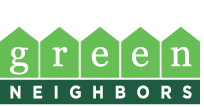Green Blog
Vegetarian recipes to inspire a meat-free Thanksgiving
Wondering how you can reduce your carbon footprint over Thanksgiving? One of the best ways is by hosting a meatless Thanksgiving, or even choosing one dish that is meat-free for friends and family. Reducing your meat intake not only reduces your carbon footprint, but also reduces resource consumption, such as increasingly important land and water usage. Who knows? Maybe you'll even inspire a distant relative or two to cut back on their regular meat consumption.
Butternut Squash Vegducken
This dish would easily be the star of your Thanksgiving celebration. With about an hour and a half of active cooking and a bake time of two hours, this cheesy dish will open more oven space for your sides and baked goods. If you don't have kitchen twine to tie the vegducken, I recommend using toothpicks for the edges or rolling up used aluminum foil into "rope."
Check out the full recipe here!
Stuffing Biscuits
If you are worried that by not making a turkey you'll miss out on stuffing (my personal holiday favorite), I have the perfect solution for you. Try making these stuffing biscuits that both bread and stuffing fans will love!
Check out the full recipe here!
Twice-roasted Squash with Maple, Vanilla and Chile
Looking for a recipe that requires minimal ingredients, tools and effort? This is the dish for you! This simple squash can be served either as a main dish or a side. It can even be cooked a day early if you want to spread out your Thanksgiving preparation.
Check out the full recipe here!
If a meat-free menu isn't a sustainable option for you or your family, there are other ways to consciously buy animal products. Understanding the labels that are attached to your food can still make a difference in your carbon footprint. USDA approved labels include:
Certified organic: If a meat product is labeled as "certified organic," it means the animal has not been given antibiotics and is fed grains that were farmed without the addition of pesticides, fertilizers or animal byproducts. It also requires that cows and pigs have "continuous access to the outdoors." The certified organic label is regulated by the United States Department of Agriculture.
No antibiotics added/raised without antibiotics: If the meat you are purchasing is labeled as "no antibiotics added" or "raised without antibiotics" it means just that. This straightforward label is regulated by the United States Department of Agriculture.
An important caveat to include in this discussion is that while these labels are managed by the USDA, there are loopholes, and it is always better to purchase animal products from a local farm or trusted source. Next time you plan to buy animal products at the grocery store- research what type of farm that meat is coming from and how it was treated before the end of its life.
I personally will be testing out the stuffing biscuits later this week. Let Clark County Green Neighbors know if you tried one (or all) of these recipes this Thanksgiving! We would love to see how they turned out.






